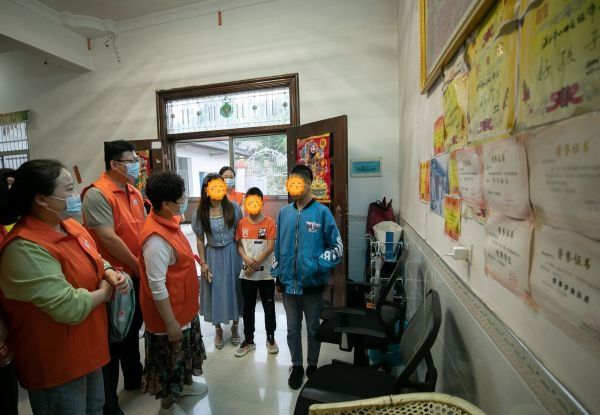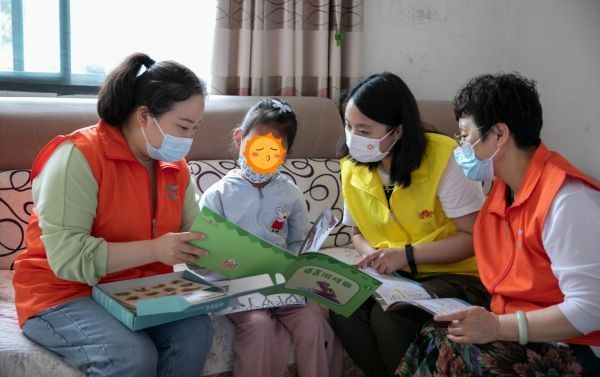Changjiang Daily Wuhan Client May 29th (Reporter Wang Chunlan Correspondent Gao Chenchen) Five years ago, Xiaojie, a boy who was in critical condition due to the rare disease Fanconi anemia(pseudonym), after transplanting hematopoietic stem cells donated by his 6-year-old brother, he has recovered and returned to school. On the eve of Children’s Day, the medical staff and social workers of Wuhan Children’s Hospital visited him at home, and they were very pleased to see the certificates of merit posted all over the house.

Xiaojie’s house is full of awards. Photo by Correspondent Zhang Zuguo
Xiaojie lives in Xinzhou District, Wuhan City. He was diagnosed with Fanconi anemia at the age of 5. Due to congenital chromosomal abnormalities, hematopoietic failure of the bone marrow has not only affected Growth and development, 20% of children will eventually develop into malignant tumors. In June 2017, the 9-year-old was sent to Wuhan Children’s Hospital for emergency treatment due to repeated nosebleeds, general weakness, and persistent high fever. He was admitted to the intensive care unit and must undergo stem cell transplantation as soon as possible.
At that time, my 6-year-old younger brother bravely donated his hematopoietic stem cells, giving his older brother a second life. Xiaojie is the first patient with Fanconi anemia in Hubei to successfully receive hematopoietic stem cell transplantation, and the first haploidentical hematopoietic stem cell transplantation in the hospital.

The hospital staff sent Xiao Meng a picture book as a gift for Children’s Day. Photo by correspondent Zhang Zuozu
On May 28 this year, a group of more than a dozen people including hematologists Li Jianxin and Xiong Hao, nurses Sun Dan, Wu Zhixuan, and social workers who had participated in the treatment at that time came to the hospital. Xiaojie pays a return visit at home and presents a gift for Children’s Day.
Xiaojie’s grandmother told the doctor that because of illness, Xiaojie often asked for leave, and even took a year off from school, and his grades were very ordinary. After recovering and being discharged from the hospital, the child thinks that the illness has delayed a lot of time, and he “must make up for what he has lost.” After that, he studied hard and his grades improved by leaps and bounds. Almost every semester, he went home with a certificate of honor.
On the same day, the staff also returned to Jiangxia to visit Xiaomeng, a 9-year-old girl (pseudonym), who had suffered from high-risk acute lymphoblastic leukemia, and the conventional chemotherapy treatment did not work well, 2017 In 2008, the then 14-year-old brother donated hematopoietic stem cells and rescued Xiaomeng. Now, my elder brother is a 19-year-old reserve officer, and my younger sister has grown up healthily with excellent grades. She also likes to take programming classes, which makes the staff very happy.
“They all had their lives on the line because of illness, and thanks to modern medical technology, they have gradually recovered their health. Now, there are many children with blood diseases like this in the department. I hope everyone can be like this. Like the two children, they beat the disease and thrived,” said Xiong Hao, a hematologist-oncologist at Wuhan Children’s Hospital.
[Editor: Yu Lina]
[Source: Changjiang Daily]